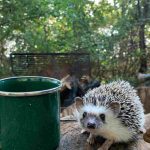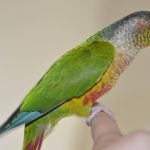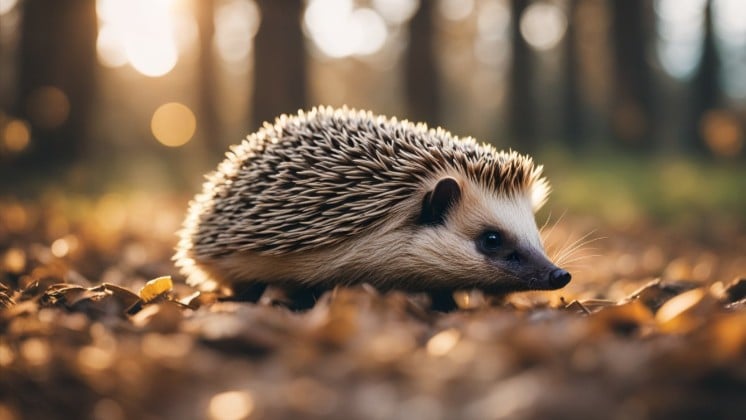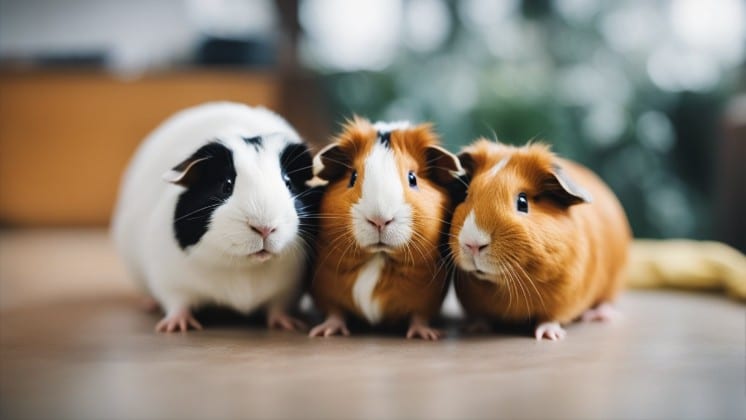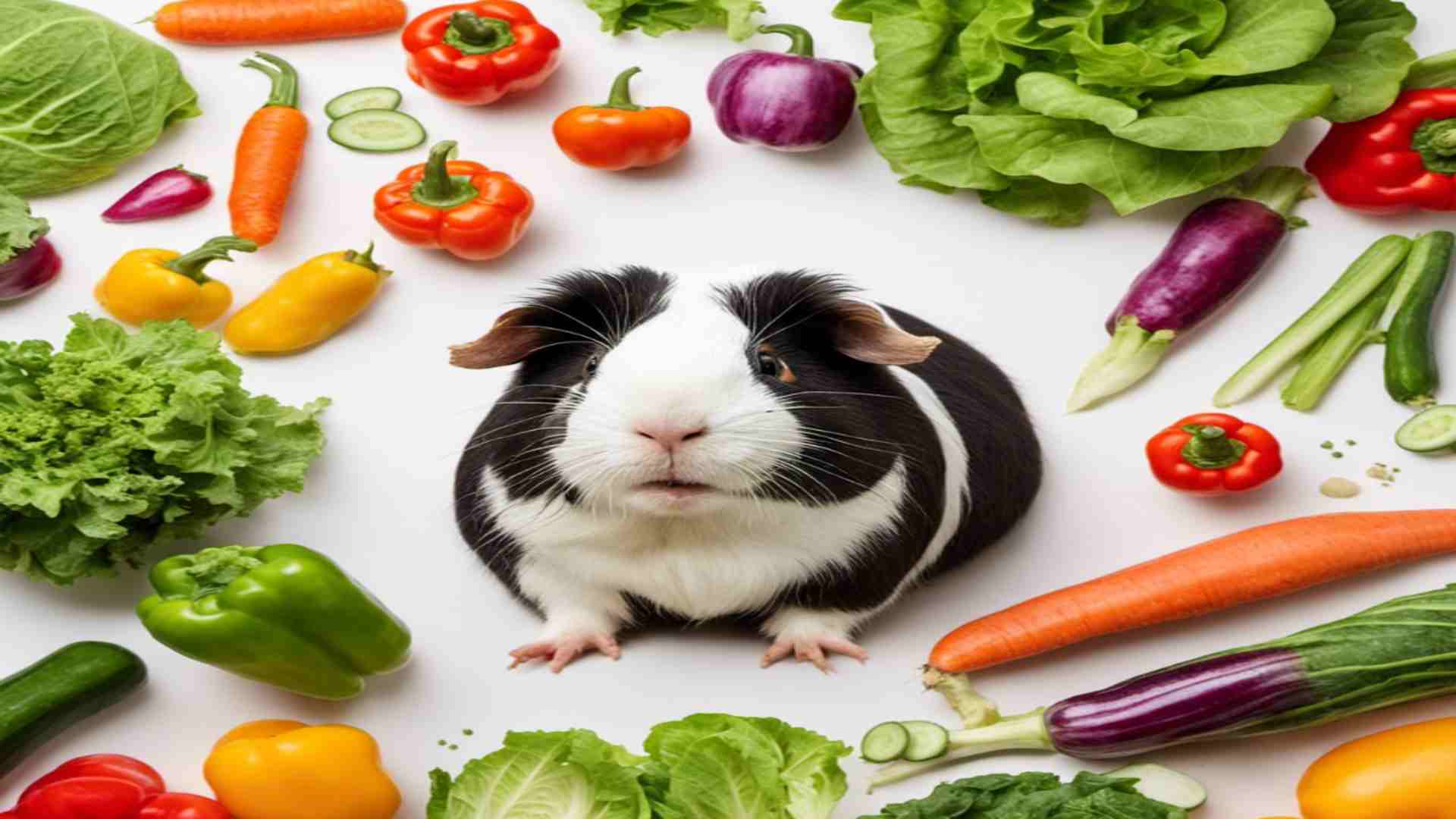Do chinchillas smell? With our affinity for cuddly animals, many of us have considered adding a pet to the family. Chinchillas are at the top of the list of domestic animals that seem lovable and unique.
In this article, we will discuss what kind of odor chinchillas may or may not have, how to care for them in order to prevent any unwanted odors, and how to keep your space smelling fresh with a chinchilla pet!
Let’s get started.
Do chinchillas smell?
When it comes to maintaining a fresh-smelling environment, chinchilla owners may wonder, “do chinchillas smell?” The truth is, chinchillas are clean animals with minimal odor, as long as their cage is kept clean and dry.
To prevent any potential odors, there are a few clever ways to manage the scent.
Regularly cleaning the cage, providing a dust bath for the chinchilla to groom itself, using bedding made from natural materials like hay or aspen, and ensuring proper ventilation in the chinchilla’s living space are all effective strategies to keep any unwanted smells at bay.
What affects the smell of a chinchilla?
The smell of a chinchilla is affected by a variety of factors, including diet, lifestyle, and genetics. Chinchillas produce scent glands located in their cheeks and between their toes, which can create an aroma that’s distinctive to the species.
How pungent the odor depends on how frequently they groom themselves; chinchillas that don’t groom regularly can have an especially strong smell.
Another factor that contributes to a chinchilla’s scent is its diet. Certain foods, such as those high in sugar or fat, can cause unpleasant odors.
A chinchilla’s lifestyle also has an effect on its odor; animals that live in unclean environments may develop more pungent scents than those who are kept in clean areas with adequate ventilation and access to fresh water at ideal temperatures.
So, we can conclude that a chinchilla’s smell is affected by the following:
- Diet can affect the smell of a chinchilla, with high-fat and sugary foods making them smell worse.
- Environmental factors like humidity, chinchilla dust, and temperature can influence a strong scent.
- Poor air circulation from too small of a cage or dirty bedding materials can contribute to bad odors coming from your chinchilla.
How can I prevent or eliminate chinchilla odors?
Chinchillas are wonderful furry companions, but they are also prone to stinky odors. If your chinchilla has a foul smell, there are several things that you can do to eliminate the odor or prevent it from occurring in the first place.
Clean the cage regularly
One of the most important steps you can take to reduce chinchilla odors is to regularly clean the cage. Keeping your chinchilla’s living environment clean and sanitary is essential in order to maintain a pleasant smell.
Cleaning should be done at least once a week, but more often if your chinchilla has used the bathroom in their cage or if you notice an odor.
In general, there are some ‘odor-neutralizing’ products you can use to keep your chinchilla’s cage clean. Let’s see what they are:
- Baking soda. Sprinkle baking soda in the bottom of the cage before you add fresh bedding. This will help to absorb odors from urine and feces.
- Vinegar. Dilute vinegar in warm water and use it to wipe down the cage, shelves, and toys. The acidity of the vinegar helps to neutralize odors.
- Change bedding regularly. One of the main sources of odors in a chinchilla’s cage is urine and feces that have been allowed to accumulate over time. Changing the bedding regularly will help reduce odors and keep your pet chinchilla’s living area clean and hygienic.
Use an absorbent bedding
Choose bedding materials that are highly absorbent, such as paper-based products or aspen shavings. These materials can help to absorb and reduce the smell of urine.
Note: Absorbent bedding keeps your pets dry and warm by preventing moisture buildup in their cage. Wood shavings are especially effective because they are able to absorb more liquid than other substrates, like paper-based litter materials.
Improve ventilation
Good air circulation can help to reduce the concentration of chinchilla urine odors.
Placing your chinchilla’s cage in a well-ventilated area is the first step to improving ventilation. Areas such as near open windows or using fans when possible will really help to increase airflow.
Additionally, high-quality filters can be used to remove odors from the air. Activated carbon filters are especially efficient for absorbing chinchilla odors.
Feed a balanced diet
Chinchillas are generally considered to be odorless animals, but this is not always the case. An imbalanced diet can cause changes in chinchilla urine, which can result in stronger odors.
The most important aspect of a chinchilla’s diet is hay. Ensure your chinchilla has access to fresh, high-quality hay at all times.
Read also: Why Do Chinchillas Fart and What Cause It? (Quick Facts)
Why do chinchillas smell like urine?
Oftentimes, chinchillas will smell like urine because their cage is not kept clean. They have scent glands near the base of their tail that produce oils. These oils can smell strongly, especially when exposed to air and moisture.
The first and most common explanation is stress. Chinchillas are natural prey animals, so they tend to become stressed in unfamiliar or uncomfortable situations.
In order to communicate that feeling, chinchillas will release an odorous substance from their anal glands, similar to how cats and ferrets mark their territory with a spray of urine.
If your chinchilla does this, it’s likely a sign that it’s feeling threatened or anxious- the scent signals other animals (including other chinchillas) that this area belongs to them!
Read also: Why is My Chinchilla Fur Matted? (Read This First!)
Do chinchillas make your house smell?
Chinchillas do not typically make the house smell. However, chinchilla owners should be aware that the dust from their fur can settle in carpets and other household surfaces; this may cause an unpleasant smell if overlooked for too long.
To avoid a smelly house, keep your chinchilla litter-trained and clean their cage regularly; also, consider using air purifiers or an exhaust fan to continuously circulate the air in a room your chinchilla occupies. In addition, washing your chinchilla every few weeks will help keep them clean and your house smelling fresh.
Does chinchilla pee stink?
Chinchilla urine can generally have a mild, earthy scent but is not considered unpleasant. However, if your chinchilla is not eating a balanced diet or their cage is not being cleaned regularly enough, the smell of their urine may become more pungent and unpleasant.
To avoid this, ensure that your chinchilla has access to fresh hay and vegetables at all times, and change their bedding frequently.
Summary
- Chinchillas have a slight odor, which can be affected by diet, lifestyle, and genetics.
- Regular grooming is important for preventing unpleasant odors from chinchillas.
- Keeping the cage clean and changing bedding regularly can help to prevent and eliminate chinchilla odors.
Final thoughts
There you have it! Now you know the when, how, and why of chinchilla smells. Keeping your chinchilla clean and healthy is important to avoid any unpleasant odors.
Want to learn more about chinchillas?
Ready to boost your knowledge to the next level? If so, check out the articles below:
- Can Chinchillas See in the Dark? (Important Facts)
- Do Chinchillas Like to Be Held? (Explained for Beginners)
- How Long Can You Leave Your Chinchilla Alone? (Read This First!)

